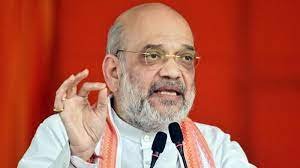In a recent address at the India Today Conclave 2024, Union Home Minister Amit Shah provided his first reaction following the Supreme Court’s ruling to invalidate the electoral bonds scheme. Shah asserted that the scheme was initially introduced with the aim of eradicating black money from political funding channels. However, he expressed concerns that the abolition of the scheme might pave the way for the resurgence of illicit funds in the political arena.
The electoral bonds scheme, which was established in 2018, was met with controversy and legal challenges. Despite its intentions to promote transparency and accountability in political donations, critics argued that the scheme lacked robust mechanisms to prevent the influx of undisclosed funds.
Shah defended the scheme by highlighting its operational framework, emphasizing that prior to its implementation, political contributions were predominantly made in cash. Under the electoral bonds system, donors were required to purchase bonds from the Reserve Bank of India, thereby ensuring a traceable paper trail for contributions. Shah underscored the significance of this shift, claiming that it curtailed clandestine cash transactions that had previously dominated political financing.
Addressing allegations of partisan advantage, Shah refuted claims that the Bharatiya Janata Party (BJP) had disproportionately benefited from the electoral bonds scheme. He cited figures indicating that while the BJP received approximately Rs 6,000 crore through electoral bonds, other political entities, including the Congress and regional parties, also garnered substantial sums. Shah underscored that the distribution of funds among parties was proportional to their respective representation in the political landscape.
Amit shah’s criticism
Furthermore, Shah criticized the Opposition’s response to the electoral bonds controversy, particularly highlighting the Congress party’s historical reliance on cash donations. He accused opposition leaders of exploiting loopholes in traditional donation practices, wherein a significant portion of contributions would allegedly be retained for personal gain.
In addition to addressing the electoral bonds debacle, Shah advocated for the implementation of the BJP-led initiative of ‘one nation, one election.’ He argued that this policy would streamline governance processes, minimize expenditure associated with frequent elections, and enable uninterrupted focus on developmental agendas.
Amit Shah concluded his address by reaffirming the BJP’s commitment to electoral integrity and asserting confidence in the party’s electoral prospects. He projected optimism regarding the upcoming elections in various states, expressing confidence in the NDA’s ability to secure victories across the political landscape.
As the debate surrounding electoral financing continues, Amit Shah’s remarks underscore the ongoing dialogue regarding political transparency and accountability in India’s democratic framework. While the electoral bonds scheme may have been deemed untenable by the judiciary, Shah’s call for reform signals a broader commitment to enhancing the integrity of the political process.













